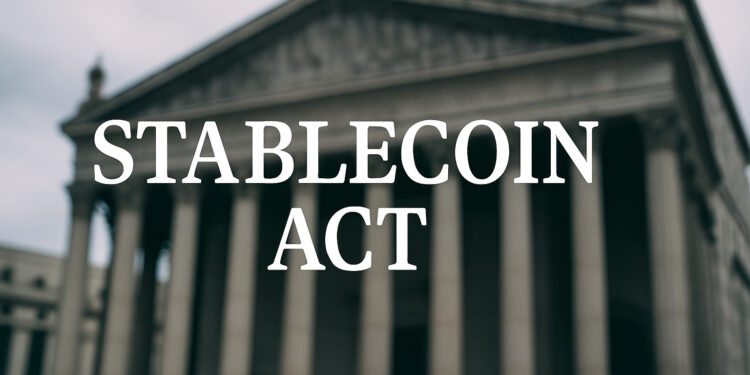- The US House Financial Services Committee has passed a stablecoin framework bill, named the STABLE Act.
- The bill is led by the Republicans but has some bi-partisan support.
- The bill will now head to the House for its next vote.
- There are a number of stablecoin bills in the process of being passed at the moment, including the GENIUS Act.
The US House Financial Services Committee has passed the Stablecoin Transparency and Accountability for a Better Ledger Economy (STABLE) Act. The vote took place on April 2nd 2025, with a vote of 32-17 in favour of the act.
The STABLE Act aims to establish a regulatory framework for payment stablecoins and to help integrate stablecoin innovation with consumer protection.
Tether, issuer of the popular stablecoin USDT, has reportedly been involved in the process of helping to draft the bill.
The Republican-backed STABLE Act also had some bi-partisan support, with 6 democrats having voted in favour.
However, there was some opposition to the bill. Maxine Waters, considered the committee’s leading democrat, raised concerns that the bill could be used by Trump to instigate government payments using the Trump family’s stablecoin for his own benefit. Waters voted against the bill for this reason.
Related: Ripple’s RLUSD Stablecoin Grows 85%, Gets Integrated into Cross-Border Payments
The Trump Family Stablecoin
World Liberty Financial, a private crypto venture launched by the Trump family, has issued its own stablecoin named World Liberty Financial USD (USD1), which World Liberty Fi says has been built for both institutions and retail.
However, World Liberty Fi said that their stablecoin is not currently tradable. Though USD1 appears as though it will be available on both the Ethereum blockchain as well as the BNB Chain.
Related: PayPal Expands Crypto Offerings With Direct Solana and Chainlink Transactions
Further Relevant Stablecoin Acts
Stablecoins have been a sector in crypto with growing interest worldwide, so it should be no surprise that regulatory acts regarding stablecoins are also gaining prominence.
Besides the STABLE Act, there is also the Guiding and Establishing National Innovation for US Stablecoins Act, also known as the GENIUS Act. The GENIUS Act is set to help establish regulatory oversight and rules for issuers of stablecoins.
A key difference between the GENIUS Act and the STABLE Act is their difference in approach to algorithmic stablecoins, which have come under increased scrutiny since the collapse of Terra Luna in 2022.
There are also reports of a concerted push occurring behind the scenes so that both the GENIUS Act and STABLE Act more closely mirror each other.
Both the GENIUS Act and STABLE Act now await debate time before they can progress. While the STABLE Act will be debated on the floor of the House next, the GENIUS Act will be debated in the Senate.
Credit: Source link






















